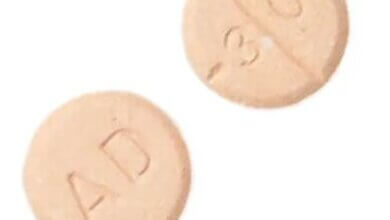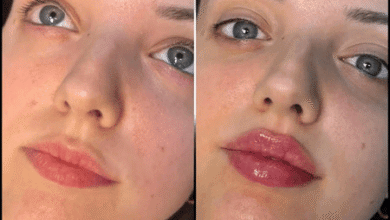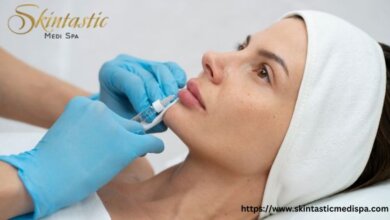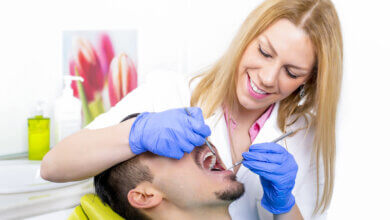Avoiding Dangerous Whitening Treatments: What to Look Out For
Avoiding Dangerous Whitening Treatments: What to Look Out For

The demand for skin-brightening solutions has surged globally, and particularly in beauty-forward regions such as the UAE. Individuals seeking skin whitening in Dubai(علاج تبييض البشرة في دبي) often explore a range of treatments—from over-the-counter creams to advanced cosmetic procedures. However, while many of these options are safe when administered by professionals, some pose serious health risks. Navigating the beauty market means understanding what to avoid, what to question, and how to identify truly safe solutions.
Why Unsafe Whitening Treatments Are a Growing Concern:
The Rise of Illegal Products:
-
Unregulated skin whitening creams are still widely sold online and in informal markets
-
Many contain banned substances that are not disclosed on the label
-
Counterfeit or misbranded products often mimic legitimate brands
Health Risks That Go Beyond Skin:
-
Toxic ingredients can enter the bloodstream
-
Long-term use may lead to liver, kidney, or neurological damage
-
Psychological harm can result from complications like scarring or rebound pigmentation
Dangerous Ingredients Commonly Found in Whitening Products:
Mercury:
-
Once a common lightening agent, now banned in most countries
-
Accumulates in the body over time, damaging internal organs
-
Can cause rashes, discoloration, and permanent sensitivity
High-Dose Steroids:
-
Used to suppress melanin temporarily
-
Thins the skin, increases vulnerability to infections and rosacea
-
Often sold without medical supervision or disclosure
Unregulated Hydroquinone:
-
Effective in small, prescription-based doses
-
Overuse can lead to ochronosis—irreversible skin darkening and thickening
-
Illegal versions may contain contaminants or unsafe concentrations
Lead or Arsenic Compounds:
-
Rare but still found in some counterfeit creams
-
These heavy metals are extremely harmful, especially with chronic exposure
How to Spot a Dangerous Product:
Suspicious Packaging:
-
No list of ingredients or manufacturer details
-
Vague claims such as “magic whitening” or “instant fairness”
-
Expired, poorly printed, or foreign-language-only labeling
Over-the-Top Promises:
-
Guarantees of overnight results or permanent whitening
-
Ads targeting insecurities or colorism
-
Before-and-after photos that appear heavily edited
Unrealistically Low Prices:
-
A high-quality treatment or cream comes with research, safety checks, and compliance—none of which are cheap
-
Extremely low-cost options often cut corners in formulation
Safer Alternatives to Avoid Risk:
Consult a Dermatologist First:
-
A professional evaluation helps identify the root cause of uneven tone—be it melasma, scarring, or sun damage
-
Doctors recommend safe, targeted treatments tailored to your skin type
Use Clinically Tested Ingredients:
-
Niacinamide: Brightens and strengthens the skin barrier
-
Vitamin C: Fights pigmentation with antioxidant power
-
Azelaic Acid: Reduces discoloration and inflammation without irritation
-
Kojic Acid: Naturally derived and effective when used in regulated amounts
Choose Trusted Clinics:
-
Seek licensed dermatology clinics with transparent ingredient sourcing
-
Ask about regulatory approval (such as DHA, FDA, or EMA compliance)
Risks of DIY Whitening Routines:
Unsafe Mixing:
-
Combining acids, steroids, or high-concentration actives without knowledge can cause burns or severe irritation
Over-Exfoliation:
-
Using peels and scrubs too often can compromise the skin barrier
-
Increases sensitivity, leading to worse pigmentation over time
Lack of Sun Protection:
-
Whitening treatments make the skin more photosensitive
-
Without sunscreen, skin damage and darkening can worsen significantly
Red Flags in Clinics and Treatment Centers:
No Medical Oversight:
-
Any center offering whitening injections, peels, or lasers without a dermatologist present should be avoided
-
Staff should be certified and able to explain the science behind each procedure
Use of Banned Substances:
-
Treatments involving mercury, unregulated glutathione injections, or bleaching agents raise serious concerns
-
Ask to see product packaging and safety certificates
No Patch Testing or Consultation:
-
Clinics should test products on a small area before full application
-
Skipping this step indicates disregard for your safety
Popular but Controversial Treatments to Approach with Caution:
Glutathione Injections:
-
While popular in some regions, this method is not approved in many countries for skin whitening
-
Long-term safety data is lacking, and the results are not guaranteed
Whitening Pills and Supplements:
-
May include untested herbal compounds or synthetic agents
-
Often lack scientific backing and clear ingredient transparency
High-Strength Chemical Peels:
-
Effective in controlled environments but harmful when overused or done by non-medical staff
-
Can result in burns, post-inflammatory hyperpigmentation, or infection
Protecting Your Skin and Health:
What to Do Before Choosing a Treatment:
-
Research the clinic’s credentials and reviews
-
Ask about the ingredients and their origin
-
Request a full consultation including a skin assessment
-
Read the label of every product you apply or purchase
Questions to Ask a Provider:
-
Is this product or treatment regulated by a health authority?
-
Are there documented side effects?
-
Will I need sun protection or follow-up treatments?
-
Can I see before-and-after cases of real patients?
Commit to Ongoing Skincare:
-
Whitening isn’t about overnight transformation but gradual clarity
-
Maintain results with:
-
Sunscreen daily (SPF 30+)
-
Hydrating serums to protect the skin barrier
-
Regular exfoliation done under supervision
-
Dubai’s Advantage in Safe Whitening Solutions:
Dubai is a global hub for aesthetic excellence and stringent medical standards. Clinics in the city offering skin whitening in Dubai are monitored by local health authorities to ensure patient safety and ethical treatment delivery.
-
Dermatologists are DHA-licensed and trained in global best practices
-
Products used are approved by either UAE, U.S., or European regulators
-
Patients receive comprehensive consultations and follow-ups
Final Thoughts:
When it comes to skin whitening, safety should always come first. The beauty industry is full of tempting shortcuts and promises, but not all are worth the risk. By recognizing dangerous ingredients, avoiding unverified treatments, and consulting trusted professionals, you can protect your skin’s integrity and your long-term health.
A luminous complexion is not only about appearance—it’s a reflection of care, science, and smart choices.





